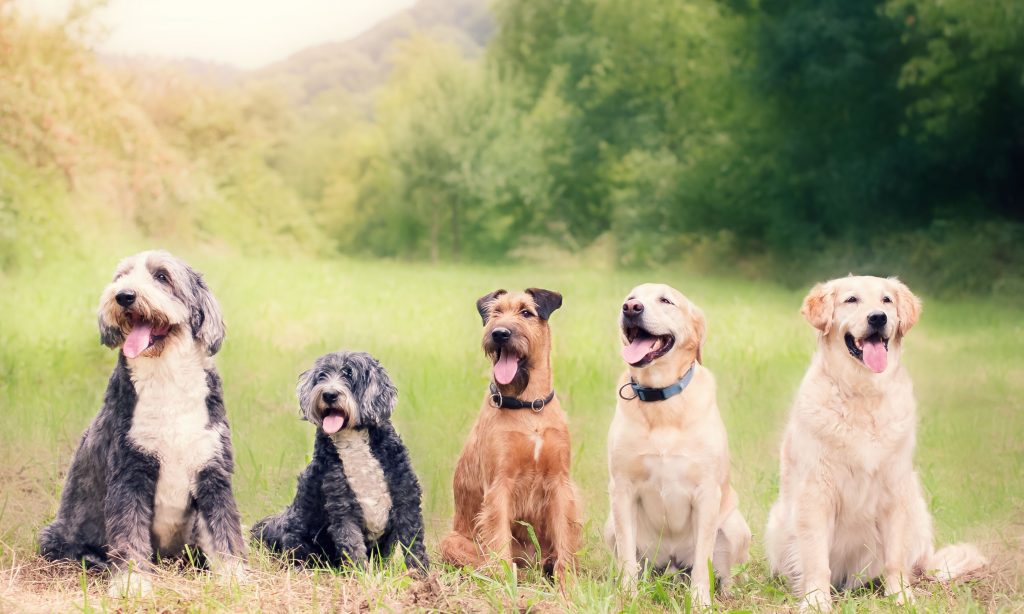This post is to educate readers that a dog’s behavior is not solely determined by its breed, but also by factors such as proper training, socialization, and environmental factors. The post aims to debunk the belief that a dog’s behavior is predetermined by its breed and to promote the idea that each dog should be treated as an individual, rather than being stereotyped based on its breed. Additionally, the post may also aim to raise awareness about the harmful effects of breed stereotypes and to encourage the adoption of mixed breeds or shelter dogs.

It is a common belief that a dog’s behavior is solely determined by its breed. Many people assume that a certain breed of dog is naturally aggressive, while others are known for being calm and docile. However, this belief is a myth. A dog’s behavior is not solely determined by its breed, but also by factors such as proper training, socialization, and environmental factors.
It is important to understand that each dog is an individual, with its own unique personality and behavior. Just like humans, dogs have their own set of experiences, genetics, and environment that shape their behavior. Therefore, it is unfair to stereotype a dog based on its breed and make assumptions about its behavior.
Proper training and socialization are crucial in shaping a dog’s behavior. Dogs that are well-trained and socialized are less likely to exhibit aggressive or destructive behavior. On the other hand, dogs that are not trained or socialized may display behavior that is unacceptable. For example, a dog that is not socialized may be fearful and anxious around strangers, while a well-socialized dog will be comfortable and friendly.

Environmental factors also play a significant role in shaping a dog’s behavior. A dog that is raised in a stressful or abusive environment is more likely to exhibit aggressive behavior, while a dog that is raised in a loving and nurturing environment is more likely to be well-behaved.
Many people assume that certain breeds of dogs are more aggressive or dangerous than others, but this is not true. There are many breeds of dogs that are known for being friendly and docile, while others are known for being energetic and playful. However, these characteristics are not predetermined by the breed, but rather by the individual dog’s experiences and training.
It is also important to note that many dogs in shelters or rescue centers are mixed breeds. These dogs are often labeled as “mutts” and are often overlooked by potential adopters who are looking for a specific breed. However, mixed-breed dogs are just as loving and well-behaved as purebred dogs. In fact, many mixed-breed dogs have a unique and interesting personality that makes them stand out from purebred dogs.

Conclusion:
A dog’s behavior is not solely determined by its breed. Proper training, socialization, and environmental factors play a significant role in shaping a dog’s behavior. It is unfair to stereotype a dog based on its breed and make assumptions about its behavior. Each dog is an individual, with its own unique personality and behavior. Let us treat each dog as an individual and not generalize them based on their breed.
Adopting a mixed breed or shelter dog can be a rewarding experience. Not only will you be giving a loving home to a dog in need, but you will also be able to experience the unique and interesting personality of a mixed-breed dog. Remember, a dog’s behavior is not predetermined by its breed, but by its individual experiences and training.

Frequently Asked Questions:
Can a dog’s breed determine its behavior?
No, a dog’s behavior is not solely determined by its breed. Proper training, socialization, and environmental factors also play a significant role in shaping a dog’s behavior.
Are certain breeds of dogs more aggressive or dangerous than others?
No, this belief is a myth. There are many breeds of dogs that are known for being friendly and docile, while others are known for being energetic and playful. However, these characteristics are not predetermined by the breed, but rather by the individual dog’s experiences and training.
Can a mixed-breed dog be as well-behaved as a purebred dog?
Yes, mixed-breed dogs are just as loving and well-behaved as purebred dogs. In fact, many mixed-breed dogs have a unique and interesting personality that makes them stand out from purebred dogs.
Is it fair to stereotype a dog based on its breed?
No, it is unfair to stereotype a dog based on its breed and make assumptions about its behavior. Each dog is an individual, with its own unique personality and behavior.
How important is proper training and socialization for a dog’s behavior?
Proper training and socialization are crucial in shaping a dog’s behavior. Dogs that are well-trained and socialized are less likely to exhibit aggressive or destructive behavior. On the other hand, dogs that are not trained or socialized may display behavior that is unacceptable.
How does a dog’s environment affect its behavior?
Environmental factors also play a significant role in shaping a dog’s behavior. A dog that is raised in a stressful or abusive environment is more likely to exhibit aggressive behavior, while a dog that is raised in a loving and nurturing environment is more likely to be well-behaved.



